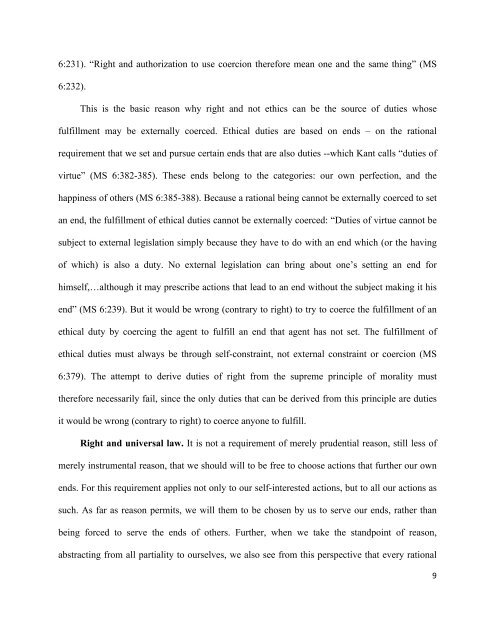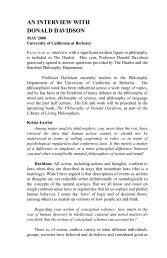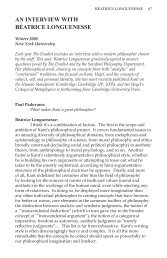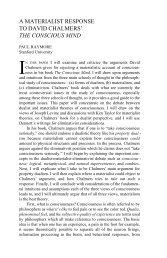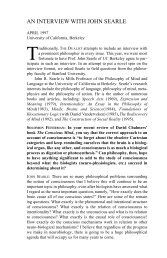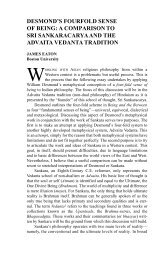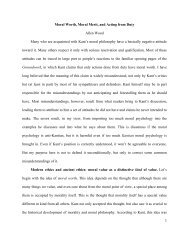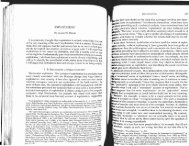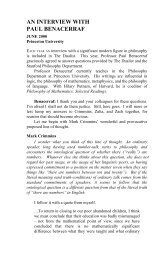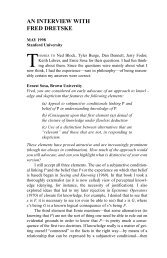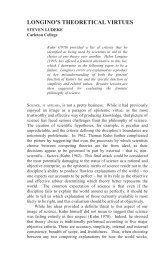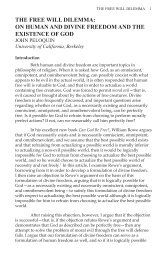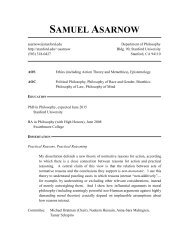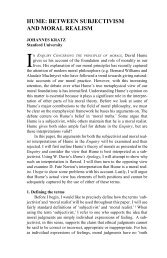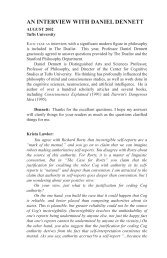The Independence of Right from Ethics Allen Wood Right and ethics ...
The Independence of Right from Ethics Allen Wood Right and ethics ...
The Independence of Right from Ethics Allen Wood Right and ethics ...
You also want an ePaper? Increase the reach of your titles
YUMPU automatically turns print PDFs into web optimized ePapers that Google loves.
6:231). “<strong>Right</strong> <strong>and</strong> authorization to use coercion therefore mean one <strong>and</strong> the same thing” (MS6:232).This is the basic reason why right <strong>and</strong> not <strong>ethics</strong> can be the source <strong>of</strong> duties whosefulfillment may be externally coerced. Ethical duties are based on ends – on the rationalrequirement that we set <strong>and</strong> pursue certain ends that are also duties --which Kant calls “duties <strong>of</strong>virtue” (MS 6:382-385). <strong>The</strong>se ends belong to the categories: our own perfection, <strong>and</strong> thehappiness <strong>of</strong> others (MS 6:385-388). Because a rational being cannot be externally coerced to setan end, the fulfillment <strong>of</strong> ethical duties cannot be externally coerced: “Duties <strong>of</strong> virtue cannot besubject to external legislation simply because they have to do with an end which (or the having<strong>of</strong> which) is also a duty. No external legislation can bring about one’s setting an end forhimself,…although it may prescribe actions that lead to an end without the subject making it hisend” (MS 6:239). But it would be wrong (contrary to right) to try to coerce the fulfillment <strong>of</strong> anethical duty by coercing the agent to fulfill an end that agent has not set. <strong>The</strong> fulfillment <strong>of</strong>ethical duties must always be through self-constraint, not external constraint or coercion (MS6:379). <strong>The</strong> attempt to derive duties <strong>of</strong> right <strong>from</strong> the supreme principle <strong>of</strong> morality musttherefore necessarily fail, since the only duties that can be derived <strong>from</strong> this principle are dutiesit would be wrong (contrary to right) to coerce anyone to fulfill.<strong>Right</strong> <strong>and</strong> universal law. It is not a requirement <strong>of</strong> merely prudential reason, still less <strong>of</strong>merely instrumental reason, that we should will to be free to choose actions that further our ownends. For this requirement applies not only to our self-interested actions, but to all our actions assuch. As far as reason permits, we will them to be chosen by us to serve our ends, rather thanbeing forced to serve the ends <strong>of</strong> others. Further, when we take the st<strong>and</strong>point <strong>of</strong> reason,abstracting <strong>from</strong> all partiality to ourselves, we also see <strong>from</strong> this perspective that every rational9


